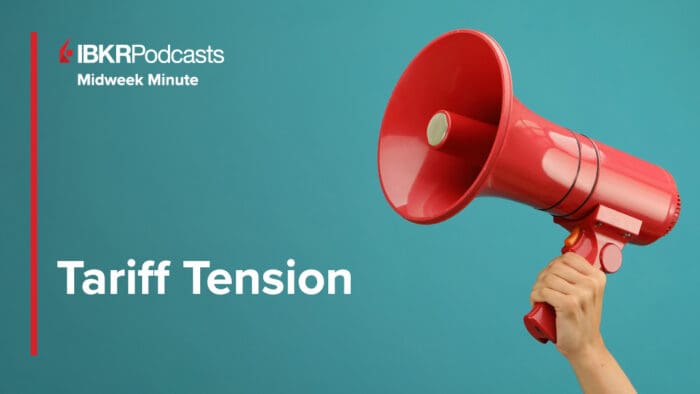Markets like narratives. They are simple to understand and a simple basis for investment strategies. Some that we have seen in recent months include:
- “Don’t Fight the Fed” – If the Fed is increasing its balance sheet, that’s good for asset prices
- Fiscal stimulus is good. If the US government is spending money, particularly if it goes directly into peoples’ bank accounts, that’s good for asset prices
- Low interest rates are good for stocks. OK, that’s largely dependent on the Fed, but low interest rates have been used to justify ever increasing valuations for a wide range of companies, particularly in the tech sector
- A strong economy is good for stocks, and high GDP growth should make its way into higher corporate earnings, making stocks more valuable
Do you see a theme here? The narratives have been almost exclusively constructive for asset prices overall, and especially good for equities. Unfortunately, the most bullish aspects of those narratives seem to be fading:
- What does “Don’t Fight the Fed” mean when it has become quite clear that the Fed will be tapering its $120 billion monthly bond purchases and is entertaining the idea of interest rate hikes as soon as late next year?
- The fiscal picture is murky at best. Prospects for a large infrastructure bill are dimming. At best, we are talking about stimulus being spread out over 10 years with possible tax increases starting soon. The imminent possibility of a government shutdown is not spooking investors – panic around prior shutdowns proved to be unwarranted – but the infighting over a budget package is raising questions about a seemingly routine piece of government business
- Interest rates have been ticking higher. I am a bit suspicious about the timing, though. Remember that the last spike in 10-year yields came just ahead of the 1st quarter’s end, and now we are days away from the end of the 3rd quarter.
- We will be getting a final read on 2nd quarter GDP on Thursday. That is expected to show an annualized 6.6% rise, which is quite strong. But markets like to look ahead. The Fed did indeed raise its outlook for 2022 GDP from a range of 2.8%-3.8% to 3.4%-4.5%, but it lowered the rest of 2020 from 6.8%-7.3% to 5.8%-6.0%. In other words, they pushed forward their estimate of economic growth. Stock traders didn’t mind, but it certainly clouds the near-tem picture. Furthermore, they continue to see longer-tem GDP in the 2-2.5% range. Is that enough to sustain the type of earnings growth that markets expect?
To top off the changing narrative, we have now re-introduced inflation into the discussion. Inflation worries are spooking many but not all US stocks today. The rise in oil and gas prices is creating fear that this will create inflation throughout the world. But investors are being selective today, and rotating into stocks that might benefit from changing conditions rather than selling all stocks. Energy stocks are of course higher, as are banks, because of the steepening yield curve. Those stocks are over-weighted in the Dow Jones Industrials Average (INDU), which is why that poorly constructed average (not an index!) is higher. Tech stocks are instead over-weighted in the S&P 500 Index (SPX) and especially the NASDAQ 100 Index (NDX), so those indices are lower.
Higher interest rates clearly have a mixed impact on different industry groups. Banks’ sensitivity to rates makes perfect sense. They tend to borrow short-term (deposits) and lend long-term (corporate loans, mortgages), so a steeper curve raises their profit margins. Yet I don’t see as strong of a connection between tech stocks and interest rates as the markets seem to imply. The rationale for rotating out of tech stocks is a valuation concern. The logic is that higher rates mean lower valuations because we would be discounting tech stocks’ future cash flows at a higher rate, depressing their present value. The problem that I see is that tech stock valuations don’t appear to matter to fundamental investors right now. They are happy to pay valuations that are historically unprecedented, so why would 4-5 basis points matter in the long-run? That said, it is clear that algorithms have begun to trade that relationship, whether it is meaningful or not. So, if enough algorithms assert that relationship, it takes on a life of its own.
And we should consider the markets’ lack of reaction to the Fed’s changing tone. Even though the Fed has signaled the end of the record monetary stimulus that has driven assets to record high prices, investors are willing to wait until they see the effects of that policy, rather than anticipate its effects. It’s strange, because markets typically consider future events in almost all situations, but tend to wait 4-6 weeks to respond to changes in monetary policy. With tapering unlikely to begin until after the November FOMC meeting, investors may be content to watch and wait until the details are announced and implemented.
One should always test the waters before attempting to swim in unfamiliar waters. In the case of the market, we see currents shifting underneath a fairly placid surface. It behooves investors to think like swimmers in this changing economic environment, and for risk managers to think like lifeguards with a keen eye for potentially changing conditions.
Disclosure: Interactive Brokers
The analysis in this material is provided for information only and is not and should not be construed as an offer to sell or the solicitation of an offer to buy any security. To the extent that this material discusses general market activity, industry or sector trends or other broad-based economic or political conditions, it should not be construed as research or investment advice. To the extent that it includes references to specific securities, commodities, currencies, or other instruments, those references do not constitute a recommendation by IBKR to buy, sell or hold such investments. This material does not and is not intended to take into account the particular financial conditions, investment objectives or requirements of individual customers. Before acting on this material, you should consider whether it is suitable for your particular circumstances and, as necessary, seek professional advice.
The views and opinions expressed herein are those of the author and do not necessarily reflect the views of Interactive Brokers, its affiliates, or its employees.
Disclosure: Futures Trading
Futures are not suitable for all investors. The amount you may lose may be greater than your initial investment. Before trading futures, please read the CFTC Risk Disclosure. A copy and additional information are available at ibkr.com.




















Join The Conversation
For specific platform feedback and suggestions, please submit it directly to our team using these instructions.
If you have an account-specific question or concern, please reach out to Client Services.
We encourage you to look through our FAQs before posting. Your question may already be covered!